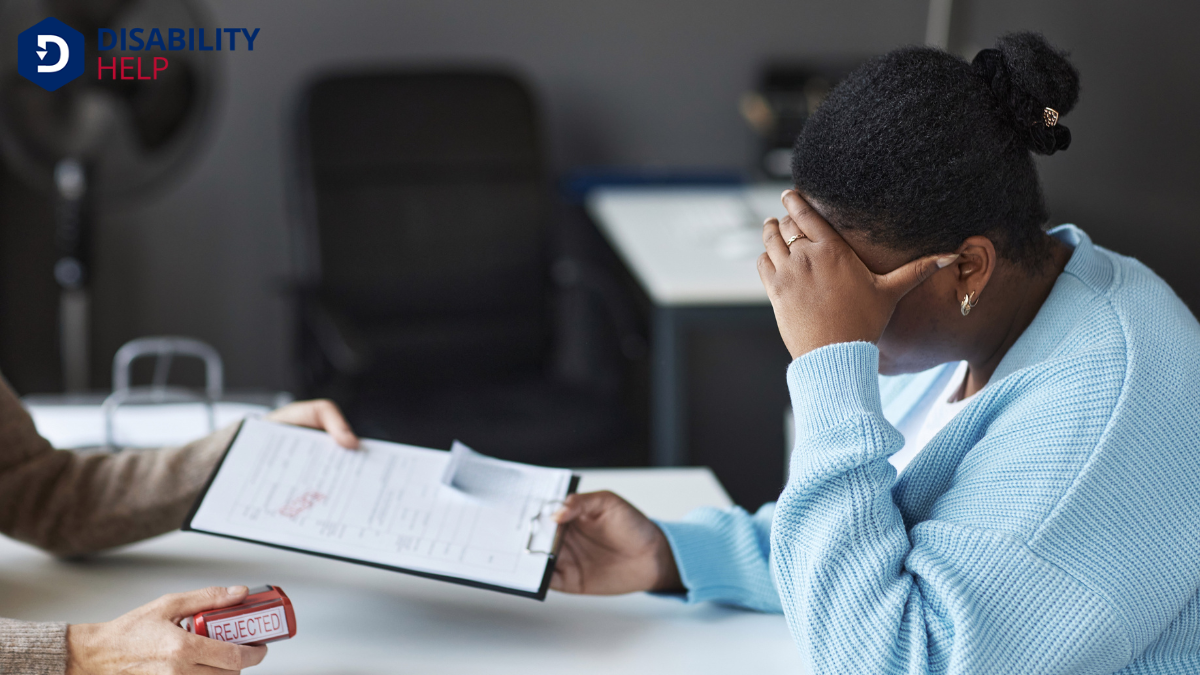As we explore the topic of whether disabled individuals can be denied entry to events or venues, it's essential that we consider the protections provided by the Americans with Disabilities Act (ADA)A U.S. law that prohibits discrimination against individuals with disabilities in all areas of publi.... This legislation is designed to guarantee equal accessThe principle that all individuals, including those with disabilities, should have equal opportunity... and prevent discrimination, yet barriers still exist. What happens when these rights are ignored, and how can we create more inclusive environments? Let's examine the challenges and solutions surrounding accessibilityThe design of products, devices, services, or environments to be usable by people with disabilities.... and inclusionThe practice of creating environments in which any individual or group can be and feel welcomed, res....
Key Takeaways
- Under the ADA, denying entry to disabled individuals based on their disability is prohibited and considered discrimination.
- Public venues must provide reasonable accommodationsModifications or adjustments in healthcare settings to support patients with disabilities. to ensure access for disabled individuals, in compliance with ADA standards.
- Denial of entry due to inaccessible facilities may be reported to the Department of Justice for investigation and enforcement.
- Legal recourse is available for disabled individuals facing entry denial, supported by the ADA's prohibition against public accommodationFacilities, both public and private, used by the public, which are required to be accessible to indi... discrimination.
- Staff training on accessibility and disability awareness is crucial for preventing discriminatory entry practices at events and venues.
Understanding Disability Rights and Legislation
When we talk about disability rightsThe legal and human rights afforded to individuals with disabilities, often the focus of advocacy an... and legislation, it's crucial to understand the core principles that protect individuals with disabilities from discrimination.
These principles guarantee equal access and opportunities, empowering those with disabilities to participate fully in society. We must acknowledge that these rights are designed to safeguard dignity, autonomy, and inclusion. They challenge barriers that might otherwise exclude or marginalize.
Our collective responsibility is to uphold these rights. We need to recognize that discrimination can manifest in various forms, from physical inaccessibility to biased attitudes.
The Role of the Americans With Disabilities Act (ADA)

When we think about the Americans With Disabilities Act (ADA), we're focusing on its vital role in ensuring that businesses and public spaces meet compliance requirements.
The ADA sets clear accessibility standards that must be enforced to guarantee that disabled individuals aren't unfairly denied entry.
Together, let's explore how these standards impact our communities and why strict enforcement is essential.
ADA Compliance Requirements
While businesses might face challenges in accommodating everyone, it's essential they understand the ADA compliance requirements to guarantee they don't unlawfully deny entry to disabled individuals.
The ADA mandates that public venues and events offer reasonable accommodations, ensuring accessibility for all. We must recognize that it's not just about physical access, like ramps and elevators, but also about communication aids for the hearing or visually impaired.
Businesses should proactively evaluate their facilities and services to identify potential barriers. By staying informed and making necessary modifications, they can foster an inclusive environment.
Let's remember, complying with the ADA isn't just a legal obligation; it's an opportunity to welcome and respect all members of our community, ensuring everyone can participate fully.
Accessibility Standards Enforcement
Ensuring that accessibility standards are enforced is essential to upholding the rights of disabled individuals, and the Americans with Disabilities Act (ADA) plays a significant role in this process.
As we navigate venues and events, the ADA guarantees that public spaces accommodate all attendees. This federal law mandates that facilities remove barriers, providing equal access to everyone.
By understanding and enforcing these standards, we can prevent discrimination and promote inclusion.
The ADA not only sets guidelines but also empowers us to advocate for better accessibility. If venues fall short, we can report these violations to the Department of Justice.
Staying informed about our rights under the ADA helps us secure that venues prioritize accessibility, enhancing the experience for disabled individuals in public spaces.
Common Barriers Faced by Disabled Individuals at Events
Attending events should be an inclusive experience for everyone, yet disabled individuals often encounter significant barriers that hinder their participation.
Physical obstacles like inaccessible entrances, steep stairs, or lack of ramps make entry difficult. Inside, narrow aisles and crowded spaces can further restrict movement.
For those with sensory disabilities, loud music or flashing lights can be overwhelming without accommodations like quiet zones or sign language interpreters.
Communication barriers also play a role when event staff aren't trained to assist or communicate effectively with disabled attendees.
Additionally, ticket purchasing platforms may not offer accessible options, leaving some unable to secure seats.
We must all recognize these barriers and work towards creating environments where everyone feels welcome and can fully enjoy the experience.
Legal Recourse for Denied Entry
Let's explore our options when faced with denied entry due to disability.
We need to understand our legal protections, which can guide us in filing a discrimination claim.
If the process feels overwhelming, seeking legal assistance guarantees we're not maneuvering it alone.
Understanding Legal Protections
When faced to denied entry, it’s vital to understand the legal protections available to disabled individuals. These protections are designed to guarantee equal access and prevent discrimination.
The Americans with Disabilities Act (ADA) is an important law that prohibits discrimination against individuals with disabilities in public accommodations, including events and venues. It mandates that facilities make reasonable modifications to accommodate disabled guests unless doing so would fundamentally alter the nature of the service.
We must be aware that if a venue doesn't comply with ADA requirements, it may be in violation of federal law. Knowing our rights empowers us to advocate for ourselves and others.
Let’s remember that access is a right, not a privilege, and legal frameworks exist to uphold this principle.
Filing a Discrimination Claim
While understanding our legal protections under the ADA is important, we might find ourselves in situations where those rights are violated. In such cases, filing a discrimination claim is a necessary step to address the injustice.
Let's make sure we’re prepared:
- Document Everything: Take notes on what happened, including dates, times, and any conversations.
- Gather Evidence: Collect photos, videos, or any other physical evidence that supports our claim.
- Identify Witnesses: Note down the names and contact information of anyone who witnessed the event.
- Check Local Laws: Each state might've additional protections beyond the ADA.
- File the Claim: Submit our claim with the appropriate agencyThe capacity of individuals with disabilities to act independently and make their own choices., such as the Department of Justice or a state equivalent.
Seeking Legal Assistance
How can we guarantee our rights are upheld if we've been wrongfully denied entry due to a disability?
First, let's gather all relevant documentation, including incident details and any communication with the venue. This evidence strengthens our case when seeking legal assistance.
We can consult with attorneys specializing in disability rights; they understand how to navigate complex legal systems. Many organizations offer free consultations, helping us evaluate our situation without immediate financial pressure.
Knowing our rights under laws like the ADA empowers us to pursue justice effectively. If we decide to file a lawsuit, our legal team guides us through each step, ensuring our voices are heard.
Together, we can strive for accountability and change, making venues more accessible for everyone.
Real-World Examples of Discrimination

Imagine walking into a bustling restaurant only to be told there’s no space for you, not because it’s full, but because of your wheelchair. This kind of discrimination still happens, affecting countless individuals.
We can see it in various settings, not just restaurants.
Consider these real-world examples:
- Concert venues with inaccessible seating areas make it impossible for wheelchair users to enjoy performances.
- Public transportation lacks ramps or lifts, excluding those with mobility challenges.
- Hotels without accessible rooms deny travelers with disabilities a comfortable stay.
- Stores that don’t have accessible entrances, preventing patrons from entering.
- Sports arenas have no provisions for accessible viewing for sideline fans with disabilities.
These are just a few instances where discrimination manifests, revealing the urgent need for more inclusive spaces.
Best Practices for Venue Accessibility
The examples of discrimination we've discussed highlight the pressing need for change, and it's up to us to guarantee venues become truly inclusive.
First, we should make certain all entrances are wheelchair accessible. Ramps, elevators, and wide doorways can make a huge difference.
We must install clear signage with braille for those with visual impairments. Let's not forget auditory aids, like hearing loops or captioning services, to make sure everyone can engage fully.
Accessible restrooms are essential, with grab barsBars installed in bathrooms or other areas to provide support and prevent falls for those with mobil... and adequate space for maneuvering.
Training staff on disability awareness and sensitivity helps create a welcoming environment.
By addressing these aspects, we make venues more accessible and inclusive for everyone.
Together, we can transform spaces into places where everyone feels welcome and valued.
How Event Organizers Can Foster Inclusivity
While ensuring venues are physically accessible is essential, event organizers can also foster inclusivity by embracing a holistic approach.
Let's explore how we can make events welcoming for everyone.
- Communication: Use clear signage and provide information in multiple formats, including Braille and large print.
- Training: Educate staff on disability awareness and sensitivity to create a supportive environment.
- Technology: Utilize assistive technologies like hearing loops and real-time captioning to enhance accessibility.
- Feedback: Encourage feedback from attendees with disabilities to identify areas for improvement.
- Flexibility: Offer adaptable seating arrangements and allow service animals, ensuring comfort and participation.
Frequently Asked Questions
What Are Some Exceptions to ADA Compliance for Venues?
We should understand that some venues might be exempt from ADA compliance if they face undue financial burdens or if altering the facility is structurally impractical. It's vital we work together to guarantee accessibility whenever possible.
How Do Service Animals Factor Into Event Accessibility?
We need to make certain service animals can accompany their handlers at events. They’re essential for accessibility and independence. Let’s work together to understand regulations, so we can create inclusive environments where everyone feels welcome and supported.
Can Venues Charge Extra Fees for Accessibility Services?
We can't allow venues to charge extra fees for accessibility services. It's essential they comply with the law, ensuring equal access for everyone. Let's advocate for fair treatment and accessibility without additional costs. Your support matters.
What Should Disabled Individuals Do if Denied Entry?
If we're denied entry, we should document the incident, gather witness contacts, and file a complaint with the event or venue. Let's also consider reaching out to legal aid or advocacyThe act of arguing in favor of, supporting, or defending the rights and interests of individuals or ... groups to protect our rights.
Are There Specific Accommodations for Sensory Disabilities at Events?
Let's consider sensory accommodations at events. We should guarantee venues provide options like quiet spaces, noise-canceling headphones, and visual aids. It's vital we advocate for inclusivity, so everyone experiences events comfortably and safely.
Conclusion
In understanding disability rights, we must recognize the ADA’s role in ensuring equal access for everyone. We can't ignore the barriers disabled individuals face or the discrimination that still occurs. By learning from real-world examples and utilizing legal recourse, we can address these issues. It's up to us, as event organizers and participants, to implement best practices for accessibility and foster inclusivity. Let’s commit to creating environments where everyone feels welcome and valued.






